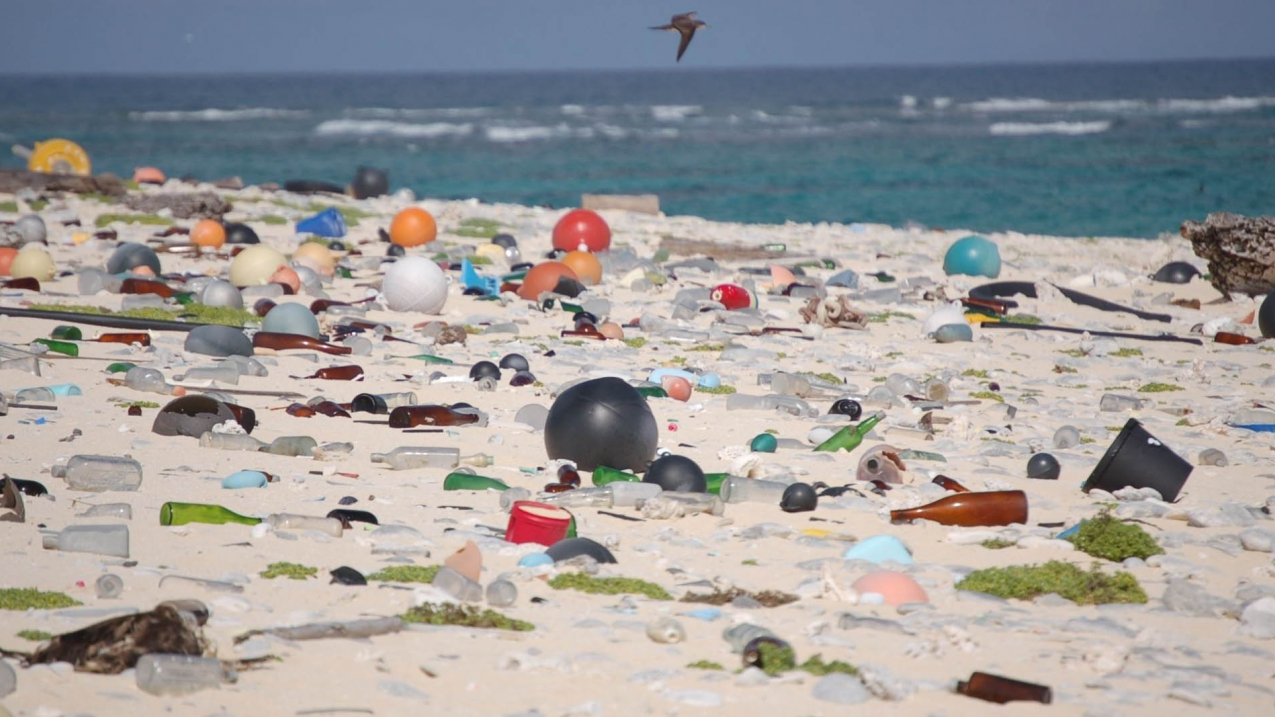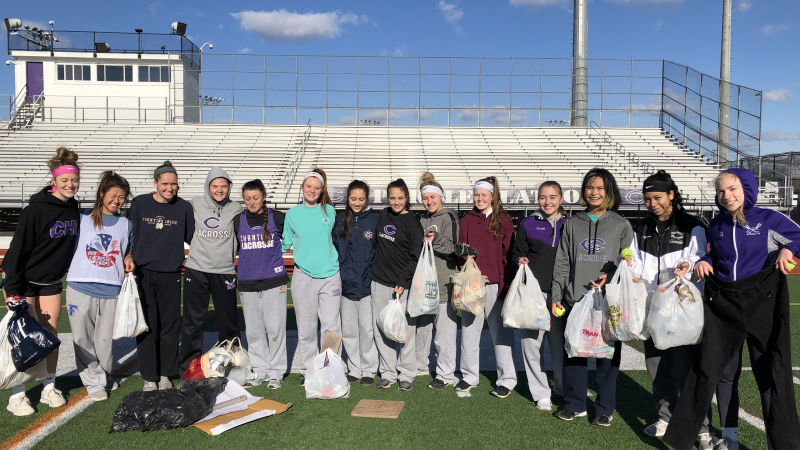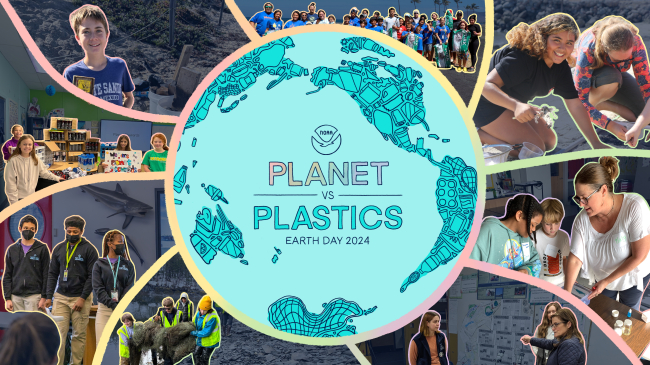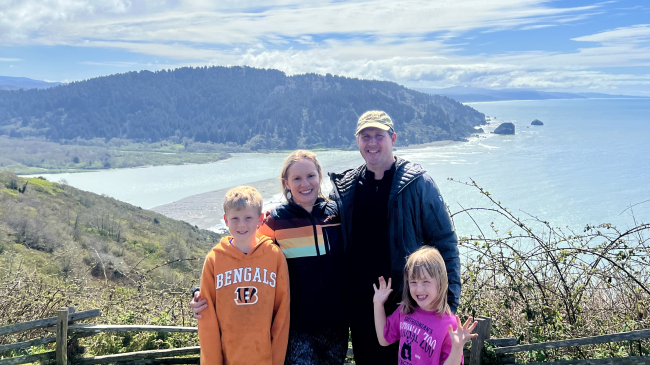Trash seems to be everywhere … blowing in the streets, perching in trees above creeks, and washing ashore on our nation’s coasts. Maybe that’s because people in the U.S. generated 262 million tons of solid waste in 2015 with about 13% of that being plastics — that’s equivalent to nearly 21 million school buses. Only one-quarter of it was recycled. Trash ends up in local waterways, and eventually in the ocean, from rain, wind, littering activities, streams, and storm drainage.

Marine debris washed up on a beach. (Image credit: USFWS)
With funding from the NOAA Planet Stewards, three teachers from Maine and Virginia implemented projects with third- through 12th-grade students to stem the tide of waste entering their local waterways. Title 1 elementary students led by K-2 teacher Tish Manning and middle school students led by science teacher Martha Conway-Cole targeted waste reduction at their school by showing just how cool they were in their BRRRR — Belfast Refuse, Reduce, Reuse, and Recycle clubs.
During the 2018-19 school year, the students worked with their respective cafeteria staff and school administrators to end the use of plastic dressing cups in the school cafeteria. They also switched to using bulk cereals served in reusable bowls, doing away with single-serve, one-use breakfast cereals. In doing so, they reduced the amount of plastic generated from their cafeteria by 75%. The BRRRR students campaigned for and ran Zero Waste Lunches, reducing lunch waste by 93%.
Conway-Cole’s sixth graders tackled water bottle reduction because of the increasing number of bottles observed in their school. Their water bottle refilling station kept 7,086 water bottles out of the waste stream. The middle school team of 66 students also participated in the second annual “keeping Belfast beautiful” event, collecting approximately 14 pounds of waste per student.

At Chantilly High School in Chantilly, Virginia, students led by science teacher Michele Gates tackled water bottle reduction. The students noticed that many empty plastic water bottles were not recycled during sporting events. In addition to installing hydration stations at their school, the students placed recycling bins around campus, including their athletic stadium and fields. By the end of the school year, the students’ efforts prevented 14,754 single-use water bottles from being used, and they collected more than 32 60-gallon trash bags full of recyclables from recycling bins they placed around the campus.
Manning, Conway-Cole, and Gates became NOAA Planet Stewards in 2019. Through their efforts, 290 students contributed 1,120 hours of stewardship activities to help their classmates to refuse, reduce, and recycle waste at their schools.
A version of this story was featured in the Fiscal Year 2019 NOAA Education Accomplishments Report.



